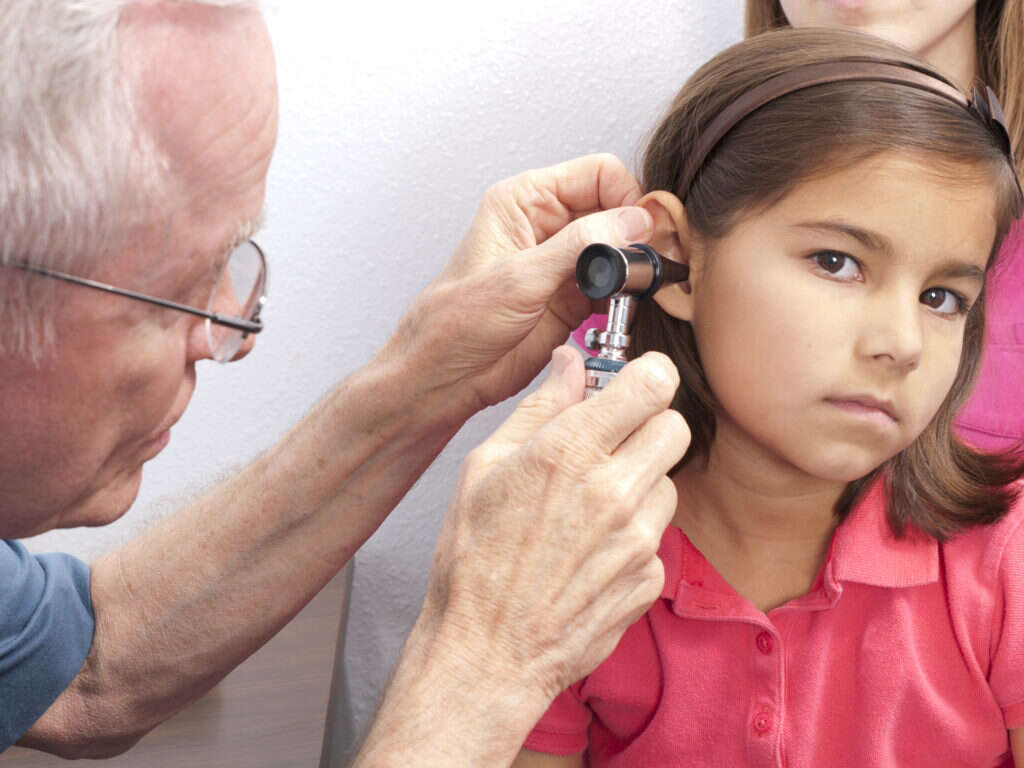Ear Infections: 10 Symptoms of Ear Infections
Ear infections, which are medically known as acute otitis media, can bring many symptoms with them. They are typically caused by some sort of infection that makes its way into the middle ear.
The middle ear is an area behind the eardrum. It contains a lot of the bones that make up the structure of the ear and allow us to hear. If an infection develops in this part of the ear, one will experience a number of symptoms that might require medical attention.
Some infections clear up quite quickly, but others may remain for a long while. Also, children are much more likely to be seriously affected by an ear infection. If you have experienced symptoms for a long time or are taking care of a child who seems to be suffering from an infection, it’s important that you seek treatment.
Ear Infection Symptom #1: Ear Aches
This is the most obvious sign of an ear infection, and the one that’s most commonly reported. The pain associated with ear infections is commonly associated with a dull, throbbing ache in the middle of the ear. Pain can arise sporadically or can be continuous, with sparks of severe pain in between.
The pain may become more intense depending on the position that the person is currently in. It’s generally noted that pain is more intense when a person is lying down, particularly if the ear that’s infected is facing downwards.
An earache is usually the first symptom that allows people to recognize that they have an ear infection. It is usually worth concern if you are losing sleep due to the pain.

Ear Infection Symptom #2: Ears Feel Full
Feeling like your ears are full, or a feeling of pressure in the internal ear, is another common symptom of an ear infection. The feeling might be similar to the one that you experience when you’re on an airplane and your ears pop.
Some people find this sensation much more irritating than others, whereas other people can cope with it easily. If this symptom has persisted for longer than a day, it might be worth considering medical attention to see if you have a more serious infection.

Ear Infection Symptom #3: Hearing Difficulty
Another common symptom of ear infections is difficulty hearing. This can occur because of the added pressure in the ear, which tends to indicate some sort of inflammation or obstruction that can physically impede a person’s hearing.
Infections can also cause a buildup of pressure inside the ear. This can lead to the eardrum becoming pressurized, which can alter various sounds and make it harder to hear things.
Generally, hearing loss related to an ear infection is quite mild. If you experience hearing loss for more than a day or so, or if you experience relatively intense hearing loss, you should seek medical attention.

Ear Infection Symptom #4: Ringing Ears (Tinnitus)
Tinnitus, a condition which is commonly observed by the sound of a ringing noise, usually very high pitched, in the ears is also a common symptom of an ear infection. Sometimes people hear something more akin to a long, slow beeping noise.
There is not necessarily going to be a trigger for the ringing of the ears. Many people report that it occurs randomly. Some research suggests that the ringing is caused by alternating air pressure in the ear which changes depending on the severity of the infection.

Ear Infection Symptom #5: Discharge
Discharge typically only occurs when the ear infection is much more serious. In this case, the middle ear might develop some sort of inflammation. During this process, the inner ear might fill up with fluid.
This fluid needs somewhere to go, so that means that most likely it’s going to leak out your ear when it has a chance. You may experience a trickling or mucus-like discharge running from your ears.
In the most serious cases, an individual’s eardrum could rupture. This only occurs if the infection is very serious or if there is a tremendous buildup of fluid, which would probably be discernible enough to cause someone to get themselves checked by a professional before any serious damage occurred.

Ear Infection Symptom #6: Nausea or Vomiting
A lot of ear infections are caused by some type of virus or bacteria. If the influence of this bacteria spreads beyond the ear, then it’s possible the immune system or other aspects of the body’s defense system may come in to play.
Nausea and vomiting are two of the most common responses to bacterial infection, and many other symptoms of digestive upset can occur if an infection makes it out of the ear and into the G.I.
Children and people suffering from compromised immune function generally have a higher likelihood of developing nausea from an ear infection.

Ear Infection Symptom #7: Fever
This is another symptom that can occur if the infection or bacteria makes it beyond the ear. Usually, fevers associated with ear infections aren’t very strong, and don’t come with any additional symptoms like chills or shivering.
However, in cases of more serious ear infections, the temperature of a fever can reach above 100 degrees F. If this is the case it’s a sign of a more serious infection and you should seek medical treatment.

Ear Infection Symptom #8: Headaches
A lot of people with ear infections end up experiencing headaches of various severity during their infection. The headaches can vary in type, as well: some might be dull and throbbing, whereas others might be sharp and acute.
The headaches don’t tend to be very serious during mild infections, but if you’re experiencing a persistent headache (for more than a day) or an extremely painful headache, in addition to other symptoms, this could be a sign of a more serious infection.
Children and babies tend to have a harder time dealing with headaches related to ear infections because they can’t really identify where the pain is coming from.

Ear Infection Symptom #9: Colds
The ear is closely connected to the nose, the throat, and other parts of the respiratory system. For this reason, it’s not uncommon for other parts of the system to display signs of infection alongside an infection of the ear canal. When one part is infected, the other parts become more vulnerable.
If you have an ear infection, you might actually confuse it with a common cold if it’s not identified quickly. This is because ear infections can also contribute to runny noses, sneezing, congestion, coughs, and sore throats.
Usually, the symptoms of a cold will go away when the individual is treated for their ear infection, as the antibiotics or antivirals will eliminate the virus entirely.

Ear Infection Symptom #10: Vertigo and Insomnia
Though these two symptoms may not at first seem closely related, vertigo and insomnia can both occur in people suffering from ear infections. Insomnia is typically more common in babies, and vertigo is more likely to occur in children.
Vertigo occurs when there is inflammation in the ear canal. The ear is responsible for maintaining balance, so when the tubing inside is inflamed, a person can experience dizziness or vertigo.


No comments:
Post a Comment